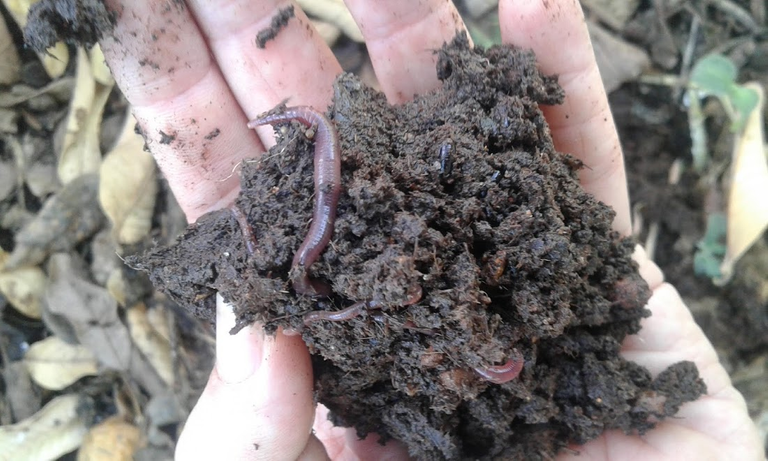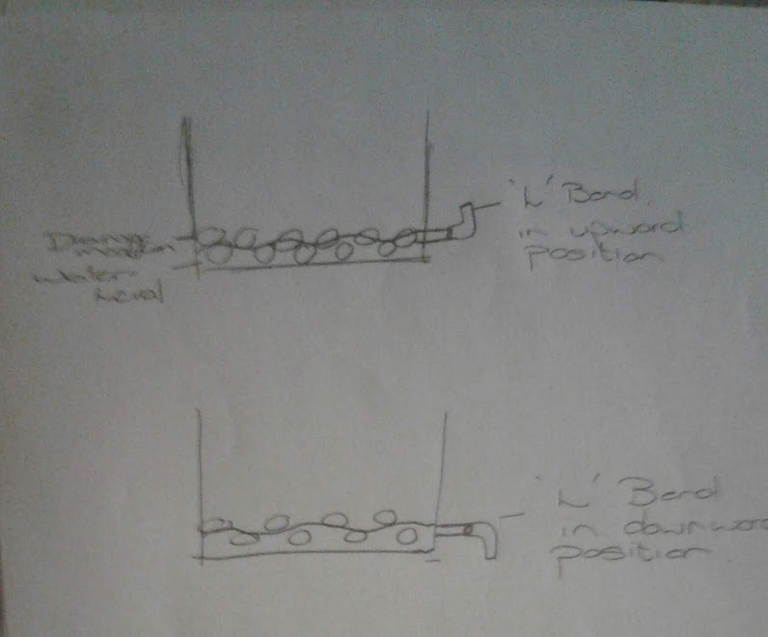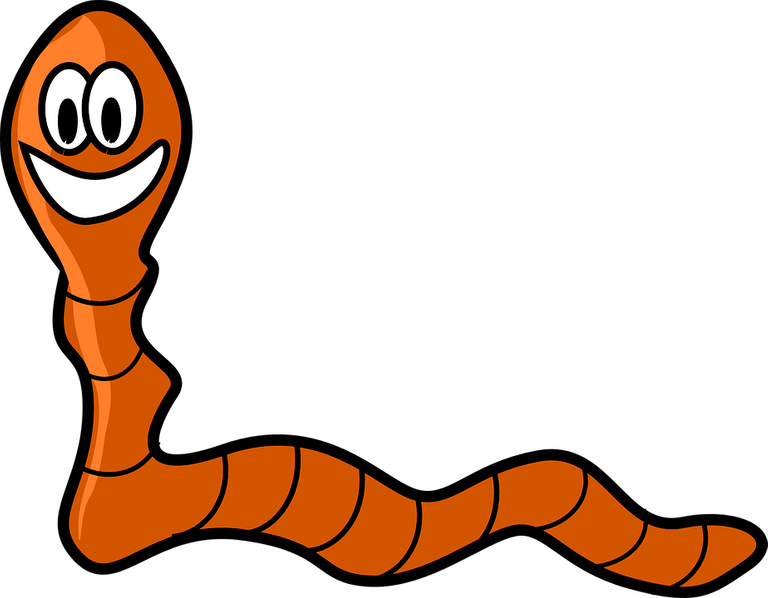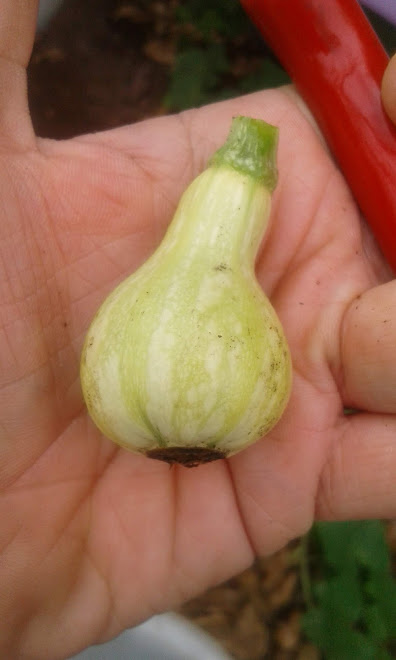Worming My Way Back To Success

There are very few things as fulfilling as generating your own farming necessities when it comes to self sustainable farming, and today I wanted to have a bit of a deeper look into the importance of having a worm farm that works for you.
Why are worms so important?
Out in the natural world, worms play a crucial role in the recycling of organic waste by means of transforming the bio-waste into high quality, nutrient rich soil and plant-food. The organic fertiliser that they produce is rich in nitrogen as well as phosphorus, and both of these are of utmost importance when it comes to plant health as well as growth. This all occurs when the worms ingest the organic matter and then excrete it as worm castings.
They for part of a vast network of organisms working together to ensure soil production, quality as well as consistency allowing for plants to grow better stronger and healthier.
Worms also allow the soil in which plants needs to grow, to be more porous and improves percolation, meaning that the plant roots are able to access the oxygen, aerobic bacteria and water from the soil more effectively, this is because of the worms tunnelling their way through the ground. Plus the looser the soil is, the better the chances are of the plant roots developing better and penetrating deeper in order for them to gain access to even more much needed natural resources, this in turn allows for plants to grow strong and have better yields of flowers or fruits.
Harnessing the power of nature;
The wonderful part about knowing all that, is that this means you are able to replicate a conducive environment to farm worms in, at your convenience in order to harness all the benefits that they are able to provide and more.
This is a great way to get rid of your organic household trash, and convert it into nutrient rich fertiliser as well as liquid gold!
But where to start?
Starting up your own worm-farm is so much easier than you might think, and although you are able to buy structured 'worm farms' online and in most garden and home shops, creating your own worm-farm is super simple.
All you need to do is get your hands on a second hand container, this can be anything from an old fish-tank or durable storage box to a discarded bathtub, when deciding on the container you want to use it is important to keep in mind the amount of food scraps you wish to compost. (In my case I used an old water tank with a liter capacity, but this is only because I had it available, and I make use of vermipost quite a lot on the farm)
Next you will need to get some worms. Normal garden worms do compost the soil as well, but I strongly suggest that you try getting your hands on some red wriggler worms (Eisenia foetida or Lumbricus rubellus), they are a whole lot faster at consuming and converting organic waste, they are also a lot more resilient in captivity. Note; red wigglers are surface-dwellers and prefer to live in the top 6 inches of the soil. so your container does not need to be deep, but if it is, the worms will simply move to the top layer of the soil where they are comfortable, but this also gives them the opportunity to move deeper down on warm days
Now all you need to do is to replicate their natural environment within your container, for this you will need to add a natural drainage system in the tank to allow excess water to drain down to the bottom of the tanks so that your worms don't drown. This can be as simple ass adding a layer of rocks to the bottom of your bin or if you would like to get a bit fancier - you can add a layer of mesh that separates the bottom of the bin from the worm housing. (In my case I used a few wheelbarrows of building rubble such as broken down concrete chunks that I got from an old pigsty I tore down) Also with my tank, because I used an old water tank, it already had a pipe and a tap at the bottom that allows me to harvest this rundown of nutrient rich water as the water levels at the bottom of the tank fills up - this is a great liquid fertiliser also known as black gold. You can add this feature to your tank by simply drilling a hole on the side at the bottom of your tank and then adding a piece if outlet pipe to the mix. For this you can either put a tap on (suggested for bigger bins)or if you have a smaller bin attaching a simple L shaped pipe bend onto your pipe that you can adjust to an upwards or downwards facing position will do the trick.

This is a simple but functional way to add drainage to the tank as drainage will only occur is the outlet allows the water to move to a lower level than that of the water table. So when the L bend is facing up, the tap will be closed - but as soon as you point the L bend downwards, all water above the drainage outlet will be let out. But whether or not you decide to add a tap to your system is all up to you.
Then you will have to add some start up medium for your worms to live in, this can be a combination of soil as well as manure, you can also add some cardboard or paper to this level - I like to call this the main suite of the worm hotel. Now before adding your worms ensure that this layer it thoroughly moistened by watering it down, then add your worms and start feeding them by adding organic kitchen or garden waste munchies for them on top of the soil - you do not need to mix it in - simply allow the worms to do what they do best! Just make sure that there are no harsh pesticides on whatever you put into the bin - this might kill your worms. (Also if you can not get hold of worms you can also buy worm eggs online or at some garden shops)
At this stage you would also have to keep your worm-bin from direct sunlight and keep it from drying out, for this you can cover the top of the container with a breathable cover such as thick material or a lid with holes in.
Keep in mind that the bigger the variety of fruits and vegetable scraps that you add to the bin - the better your compost will be. Your worms will enjoy an array of foods such as Vegetable scraps and peelings like corn cobs, cucumber ends, tomatoes, avocado shells, fruit scraps and peelings like watermelon rinds, banana peels, apple cores, and so on. You can even add used tea bags, coffee grounds and filters, cardboard, newspaper and paper towels.
But there are still some foods that you need to steer clear of with your worms.
Foods to stay away from:
Meats, oils and dairy products
These foods are more complex and will take longer to break down, this could lead to fowl odours and unwanted pests.Acidic foods
This includes orange rinds and other citrus fruits.Onions & Eggshells

image credit
Harvest Time;
Once you have created a favourable environment for your worms, they will be working around the clock to process your organic waste into an amazing compost, and once your bin is filled and you notice that there is little to no bedding left in your bin - this means that you finally get to reap the rewards. This simply means separating the worms from the castings and removing the finished compost from the bin.
In order to do this you simply have to stop feeding the worms for a week or two - don't worry the worms will not starve. Then you can either move the contents of the bin all to one side of the bin while removing any big pieces of un-composted matter or bedding that you come across and start a fresh layer with bedding soil an food on the empty side of the bin, the worms will then slowly start migrating to the fresh side of the bin, allowing you to harvest clean vermipost to use in your gardens. To help the worms migrate a bit faster, you can cover only the new side of the bin - the worms will happily move faster to the covered side of the bin. Alternatively, you can dump the entire contents of the bucket out, start a fresh layer in the bin in a pile leaving it exposed, the worms will move down to the bottom layer of the pile in order to get away from the light, allowing you to harvest the top section of the compost, you can do this until mostly only worms remain and then add the worms (or if you like only a selected amount of worms if the population is too big) back to the 'new' bin.
It is more than likely that there will be worms in the harvested compost, but this is certainly not a problem as your worms will happily continue their good work in your garden where the compost will be used. Any excess worms from an oversized population can also be released into the garden, or used to start additional composting bins.
In the video below, you can have a look at my worm-farm as well as the stage that it is at now, currently I am still busy trying to re-populate the bin after recent draughts.
Lets get down to business!
Your compost is now ready for use, and although it is great to use it immediately when all the micro organisms are still fresh and active, you can also store the compost to use at a later stage. Either way, your compost is ready to be mixed in with potting soil or directly into your garden whenever you are ready to do so. Alternatively you can also use the worm castings as a top dressing for your plants or lawn.
Another great way to use your harvested compost is by making an earthworm tea - YUM... No, Not that kind of tea. Earthworm tea is a liquid extract made from seeping worm castings in water overnight, this can be done by simply adding 1 - 2 cups of worm castings to approximately 5 liters of water and letting it stand over night, then using the drained water to water the plants with as you normally would, this simply makes all the nutrients in the worm castings readily available for the plants to absorb (great for plants that really needs a boost), while working worm castings into your soil acts as a slow release of the same nutrients.

Little Surprises!
Over and above all the obvious reasons why worm farming is fantastically beneficial, my worm bin yielded one more unexpected little surprise for me. while the worms were busy converting kitchen and garden scraps into a stunning fertiliser and ground supplement, it also decided to host a butternut plant, I am guessing that some of the butternut seeds that found its way to the worm-bin via the kitchen scraps managed to germinate in the bin, and ended up giving me a handful of yummy baby pumpkins that I ended up having in a stew.
I picked them young as the pumpkin plant was at a point of being covered completely with the daily worm food being poured over it, but I still wanted to enjoy these unexpected spoils.
To listen to the audio version of this article click on the play image.

Brought to you by @tts. If you find it useful please consider upvoting this reply.
👍
👍
👍
👍
👍
Looks like a very detailed intro to worm farming, that’s great to see someone else sharing their experiences of worm farming.
I haven’t read it all yet as I’m still at work so will read thoroughly later on. I’d like to add my opinion on the point of what food to stay away from:
Posted using Partiko iOS
Oh I absolutely agree, because most small scale growers would have a kitchen system, meat would be ill advised because of the duration of decomp, smell etc. But you are right you can add that in moderation.
Eggshells can be good when ground fine, but they can also cut the worms so I am personally careful of that - plus personally I would rather just feed that to the BSF which are much more ferocious in their consumption :D
at this stage I am still busy trying to get the populous up, as the drought really cleaned house so to say, I have lost a great deal of live stock as well as crops and orchards, and the worm bin suffered a bit under that as well - but I will get back on that horse :D
Sorry to hear. In Australia too is going to be a tough year, heat and drought have already started to hit us
Yeah, my sympathies and I wish you the best of luck, w have been in a seven year progressive draught, and we are hoping that this year will be better. at this stage all underground water that we have been reliant on, on the farm, has dried up. our rain annual rain season has just started, and the best we can hope for is that this year will be sustainable.
and yes - any input is always welcome.
Much Love!!
You have been curated by @jasonbu on behalf of Inner Blocks: a community encouraging first hand content, with each individual living their best life, and being responsible for their own well being. #innerblocks Check it out at @innerblocks for the latest information and community updates, or to show your support via delegation.
Thank you so much - I really appreciate the support!
Hi, @breezin!
You just got a 0.52% upvote from SteemPlus!
To get higher upvotes, earn more SteemPlus Points (SPP). On your Steemit wallet, check your SPP balance and click on "How to earn SPP?" to find out all the ways to earn.
If you're not using SteemPlus yet, please check our last posts in here to see the many ways in which SteemPlus can improve your Steem experience on Steemit and Busy.
You’ve been visited by @trucklife-family on behalf of Natural Medicine.
This is such a wonderful informative post, you really have included everything you need to know to start your own worm farm. Having healthy soil is everything, because with healthy soil we have nutrient rich food and then healthy bodies. We are what we eat!
Did you know that Natural Medicine now has it's own token, rewarding natural healing and health wisdoms? You can check out our front end, naturalmedicine.io If you've been involved in our community over the last year, check your wallets for LOTUS and stake them to start earning curation rewards!
Discord Delegate Here
Hey, than you so much TLF - it is great seeing you on my blog, and thank you kindly for the support!
!giphy worms
giphy is supported by witness untersatz!
Worms are the best. There's not many more things as thrilling as soil full of happy worms!
I know right, and to think that there was a time in my life, where I would cringe at the idea LOL
Realllllyyyy???? I've always loved worms. But yeah sometimes I see my adult self and wonder - how did life become about waxing lyrical about compost?